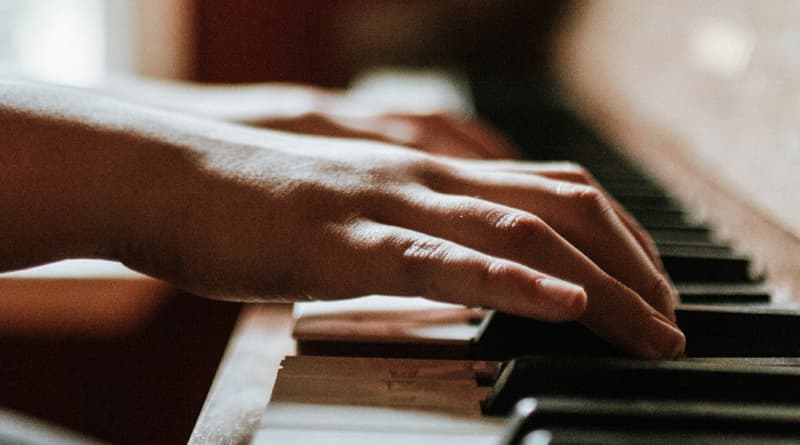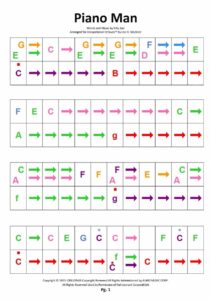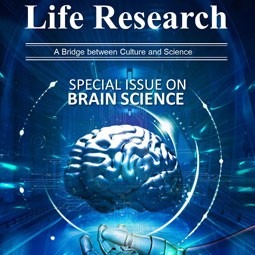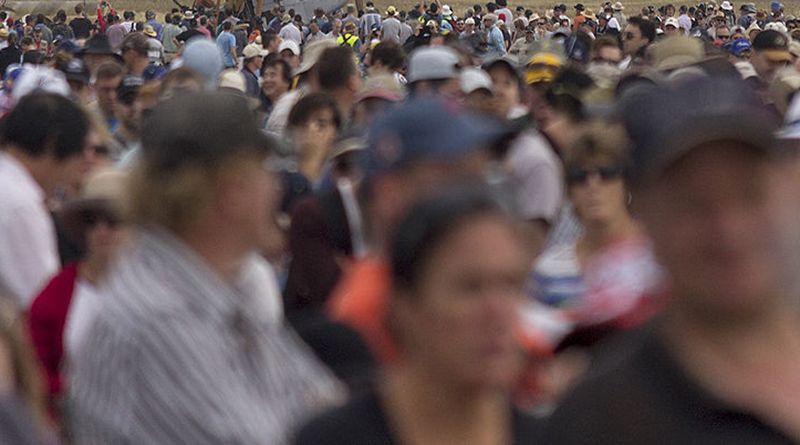
Piano as a Coping Mechanism in the Age of COVID-19
By Lee D. Stockner
“Flow” In The Time Of COVID-19
My name is Lee D. Stockner and as a classical pianist with an attention deficit diagnosis, I know firsthand that playing and succeeding with musical challenges is a purposeful and highly rewarding endeavor. I also know that if you find yourself in the “special needs” category, no matter how mild or pervasive, the susceptibility for depression is inherently high. During the Covid-19 pandemic, that susceptibility is increased for everyone – even the strongest among us. It leaves time and space for our minds to stew in negativity, isolation, failure, and more. Alternatively, when I am playing the piano, if I am on a confident pathway to success, my mind soon becomes absent of this negativity, even if only for a while. Instead, it is filled with symbols to translate, organized instructions, exciting patterns, and beautiful sounds. There is also the motivating feeling of getting closer to achieving goals as the music begins to emerge from my fingers effortlessly, like each digit has a brain of its own. This is part of the process of reaching a highly rewarding state of mind, named “flow”.
Shane’s Journey
Now, I would like to tell you about my buddy Shane, who is diagnosed with Autism and ADHD. For the last 2 years, he has been taking piano lessons using my curriculum, Occupational Octaves Piano™. He is an awesome bundle of energy, intelligence, and impulsivity. While he loves music and loves performing, he also has a great deal of anxiety to manage. Shane’s mind and body are in constant movement, making stillness a tremendous challenge for him. However, at the piano he is experiencing concentration, expertise, and emotion – the three psychological constructs of reaching a flow state. Since the pandemic began, he has been using the piano as a coping mechanism. His mom, Neha, refers to the piano as their family’s saving grace. In a recent interview, she shared “It’s been our family’s saving grace. It is so clear to us that the piano is where he goes when he is feeling anxious or just wants to have a good time. He’ll play 3 to 5 times a day, we never have to tell him to practice, and the songs are great too – Lean on Me and Stand by Me going on in our household has been uplifting for the whole family.” Shane is playing songs today that would have taken him at least 5 years to reach if we were using traditional music. My recent interview with Neha is available here:
Click Here to View Neha’s Interview
Occupational Octaves
As the creator of Occupational Octaves Piano™, I have spent just about every day of the last ten years teaching my students with Autism and other special needs to play the same classical music I grew up playing. I have also had the privilege of training other professionals around the world to utilize my method. Occupational Octaves Piano™ is a curriculum written in a special-needs-user-friendly music notation, which is an entirely new language of music. Although it was originally designed to empower kids on the Autism spectrum who deal with severe issues which include being nonverbal, self-abusive, low comprehension skills, and high depression, this language is really for anyone. My work has been featured in a documentary about my program named “Occupational Octaves: The Documentary,” and in various newspapers/networks.
Occupational Octaves: The Documentary
When discussing a child who is constantly hyperactive, impulsive, and loses focus without fully understanding tasks, the end result is rarely performances of Beethoven’s Sonatina in F Major, Bach’s Minuet in G, Bill Wither’s Lean on Me, Billy Joel’s Piano Man, Chopin’s Nocturne, and much more. His combined expertise, concentration, and emotion for the experience are hallmarks ofr experiencing a flow state! This means that in addition to the beauty of performing and filling his parent’s home with music, Shane is likely experiencing benefits of flow including lowering of blood pressure, steadying out of breathing, improving posture, and raising quality of life. This is one of the best ways one could cope with the Covid-19 pandemic, regardless of whether the player has a diagnosis or not.
What is “Flow”?
To fully grasp the notion of flow, one must first understand a term that is not very common; transient hypofrontality. Transient means temporary, hypo means reduction, and frontality refers to the prefrontal cortex, which is a main functioning center of the brain. If someone is overloaded with anxiety, their prefrontal cortex tends to be overactive, hence the nonstop thoughts circulating through the mind. Research shows that children with Autism and other special needs often have an overgrowth and dysfunction of the prefrontal cortex, which I suspect is the case for many of my students. This reality brings even greater importance to the notion of transient hypofrontality, as it refers to a temporary reduction of overactivity in an overactive brain, which can quell anxiety. That’s cool, right? Well, how does it happen?
Transient hypofrontality has been referred to as the “closed mental loop” which is the bedrock of all flow states. When we say someone is completely mindful, which is what successful meditators achieve, people close a mental loop without allowing disruption from outside stimuli. By fully controlling what is present in the mind, you also control what is not present in the mind – stress and anxiety.
So, at the piano, if someone is going to create a closed, mindful, mental loop, what exactly will the mind be filled with? The contents of the loop are what I call the “Piano Flow Cycle” –
Understanding whether someone has reached transient hypofrontality at the piano is as simple as seeing if the steps of the piano flow cycle are connected and uninterrupted for periods of time. If a student is playing a properly challenging song, he is translating and performing hundreds, if not thousands, of micro-instructions which only become music with true understanding of the steps and challenges. If there are no breaks or pauses between the steps to take and the music sounds accurate, chances are high that the mental loop is closed. In my estimation, it is highly likely that hours spent in transient hypofrontality from successfully performing challenging music will lead to flow and its numerous benefits.
A trained and experienced pianist can look at any note and immediately know exactly which key to push, which finger to use, and how long to hold it for. This refers to the aforementioned expertise necessary to reach flow. The reason many students using Occupational Octaves™ get to experience flow at the piano is based on the same principle as my own flow experiences – the ability to translate instructions with little to no effort and play with nearly 100% accuracy during performance.
The Power Of Music
It is not clear to me why simply listening to your favorite song would lead one to experience something transcendent however, it happens over and over. Why does it feel so good? Well, life is stressful. Life is challenging. Sometimes, life is depressing. Knowing that we cannot escape these harsh realities, music seems to have a healing property that makes it more manageable. Considering that during a flow state our bodies produce serotonin and dopamine, which are the hormones of happiness and the best defense against depression and cortisol, how wonderful is the idea of using music as a coping mechanism?! In moments when one is in flow, life can feel effortless, timeless, and euphoric. Living as many moments as possible in such a state is part of why people choose to be artists, musicians, and athletes, even though their careers are not likely to be financially fruitful. As a classical player of over 30 years, I can tell you firsthand that the sensations and feelings from playing properly leaves the most depressed individual, of which I have been at points in my life, absolutely elated. In these moments, a coping mechanism can even transcend into a thriving mechanism.
If you would like to learn more about any of the ideas here, please read my publication in Traditional Medicine Research. Classical Piano as a Pathway to Flow States for Learners with Disabilities is featured in their issue dedicated to brain science. You can view it here –
Classical Piano as a Pathway to Flow States for Learners with Disabilities

Lee D. Stockner is the Owner and Creator of Occupational Octaves™.
Since 2013, Occupational Octaves Piano™ has been used worldwide to empower learners with Autism and other special needs to independently play classical music at the piano. Taught mostly by Special Educators, Music Educators, and Music Therapists, the empowering factor behind this method is the “Special-Needs-User-Friendly New-Language-of-Music,” created by the program’s creator and author, Lee Stockner. The system, which utilizes colored letters and ten colorful rings worn on student’s fingers, also means being “Non-Music-Educator-Friendly,” enabling various teachers & therapists without music experience to be easily trained. By teaming with UnitusTI, a cloud-based curriculum and data analysis application, Mr. Stockner wants to empower educators from numerous backgrounds to use the piano to accomplish the optimal and often mandated goals for a particular student.
“Each special needs student has an Individualized Educational Plan, or an IEP, which defines specific goals for developing and improving their functional lives. If a student’s goals include increasing concentration, strengthening fingers, expressing emotion, improving ocular movement, or one of hundreds of others potential targets, the piano is an incredibly rewarding place to achieve them” says Mr. Stockner of his vision for the future of music in schools. “Furthermore, by teaming with UnitusTI and transforming Occupational Octaves Piano™ into a cloud based curriculum with built in analysis tools, schools and organizations can reduce the amount of time their staff spends on the paperwork that is automatically generated and easy to access via phones, tablets, or computers, save costs by going paperless and wireless, and unite teachers and parents, both of whom can access the curriculum to maximize learning in home and school settings.”







